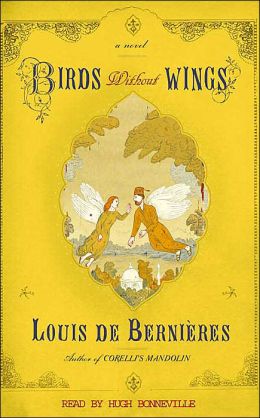General Discussion
Related: Editorials & Other Articles, Issue Forums, Alliance Forums, Region ForumsWho will write the epic for our time?
Will there really every be one? I was just watching "The Lord of the Rings: The Return of the King" and was thinking about now JRR Tolkien's genius in creating his own epic lay in tasking Bilbo Baggins and Frodo with recording a historical epic of the fictional world. In the tradition of Homer and other great spinners of legends of their peoples, they project forward a grand arc of historical progression and slices of minutia of everyman. The great epics have found their way into our studies of literature, history, and archaeology. Their staying power is as much about still being able to recognize that the fabric of human experiences remains recognizable regardless of its cultural or epochal context.
The adventures of Frodo prompted me to think about if it were really possible to develop a grand epic about our era--our world. I can't quite wrap my head around a cohesive grand scaled narrative that reflects the modern world. This planet feels too big and the fit between peoples feel too disjointed for a unified narrative. Granted, the unending battle between good and evil, for want of a better word, continues. Can we even imagine a protagonist of truly heroic stature now? One of our problems is that the notion of heroism has become pedestrian.
Just musing a bit. Can you envision the grand tale that some young person a couple of millennia from now could study and recognize his world reflected back at him in the imaginings and recordings of an author from today? What can be distilled from the gazillion bytes of information and opinions we find recorded today? Regardless of how many facts and information are available, there is something in man that yearns for the resolution of the loose ends in the story of how his world came to be as it is in the present...a meaning to all of the suffering, death, uncertainty, fighting, and, yes, moments of achievement and joy.
shraby
(21,946 posts)Drale
(7,932 posts)George R.R. Martin's A Song of Ice and Fire, that truly is of Epic caliber
OldEurope
(1,273 posts)by Tad Williams.
Or maybe it is the Mad Max series.
DreamGypsy
(2,252 posts)...though they may still contain fictional elements.
The Iliad and The Odyssey are such epics. War and Peace is such an epic.
I would propose, for an epic of this sort, Birds Without Wings by Louis De Bernieres.
If you really want a story that comes from our time, the last century and the beginning years of this century, and captures events and actions and people and places that shaped our social, political, economic, and religious world today...and which, if it does not give "a meaning to all of the suffering, death, uncertainty, fighting, and, yes, moments of achievement and joy", at least exposes them all...Birds Without Wings is such a book.
There is a review from the New York Times by Amy Kroin, October 31, 2004, that presents an excellent synopsis of the story:
<snip>
''Birds Without Wings'' opens with a group of loosely connected anecdotes; only gradually do they begin to pick up weight. But the central figure here is Eskibahce itself -- a town, we learn early on, that will eventually be destroyed. De Bernières rhapsodically evokes the pastel-hued houses, the songbirds that warble in cages outside each dwelling, the sunlight reflecting off the mosque's golden dome. Christians and Muslims live side by side in relative harmony. The wife of the revered imam is chummy with a Christian woman; a beautiful Christian girl is betrothed from childhood to an adoring Muslim goatherd; a Christian boy teaches his Muslim friend to read and write.
This mingling of religions and ethnicities reflected the larger tolerance in the Ottoman Empire. Of course, there were fault lines within the empire, and Eskibahce has its own fissures: a suspected adulteress is stoned in the town square; the local drunk incites a mob to assault an Armenian resident; an otherwise loving father forces his son to murder his pregnant (and unwed) sister. These barbaric acts disrupt the town's natural rhythms, but never to the breaking point. Only when war intervenes does everything fall apart. The Balkan wars are followed by World War I, and then by the devastating conflict between Turkey and Greece, which led to the expulsion of Turkish Christians to Greece and the parallel evacuation of Greek Muslims to Turkey. This is all documented in close detail.
De Bernières has always been adept at juxtaposing brutality with episodes of high comedy or romance, and that's certainly the case here. But about midway through the book the scales tip toward the tragic and never tip back. World War I divides the young men of Eskibahce; Muslims are recruited to fight while their Christian counterparts are relegated to labor battalions. The novel's most illuminating section is a series of letters a young soldier named Karatavuk writes about the agonizing campaign at Gallipoli. De Bernières evokes the particular intimacy of this legendary battle, and he humanizes war without minimizing its horror. Australian soldiers fling not just bombs but gifts into enemy trenches, and the Turkish soldiers reciprocate in kind. On another occasion the enemies acknowledge one another by name while retrieving the dead from the battlefield.
Reading this book was a moving, troubling, thought-provoking experience for me. I think some readers a thousand years from now could derive similar feelings and knowledge, just as we now do from the works of Homer and Tolstoy.
A great challenge, Skidmore. Thanks!

Buns_of_Fire
(17,174 posts)and future generations will wonder how in hell we ever figured out how to breed.
antigone382
(3,682 posts)Or at least displays which purport to reveal said knowledge.